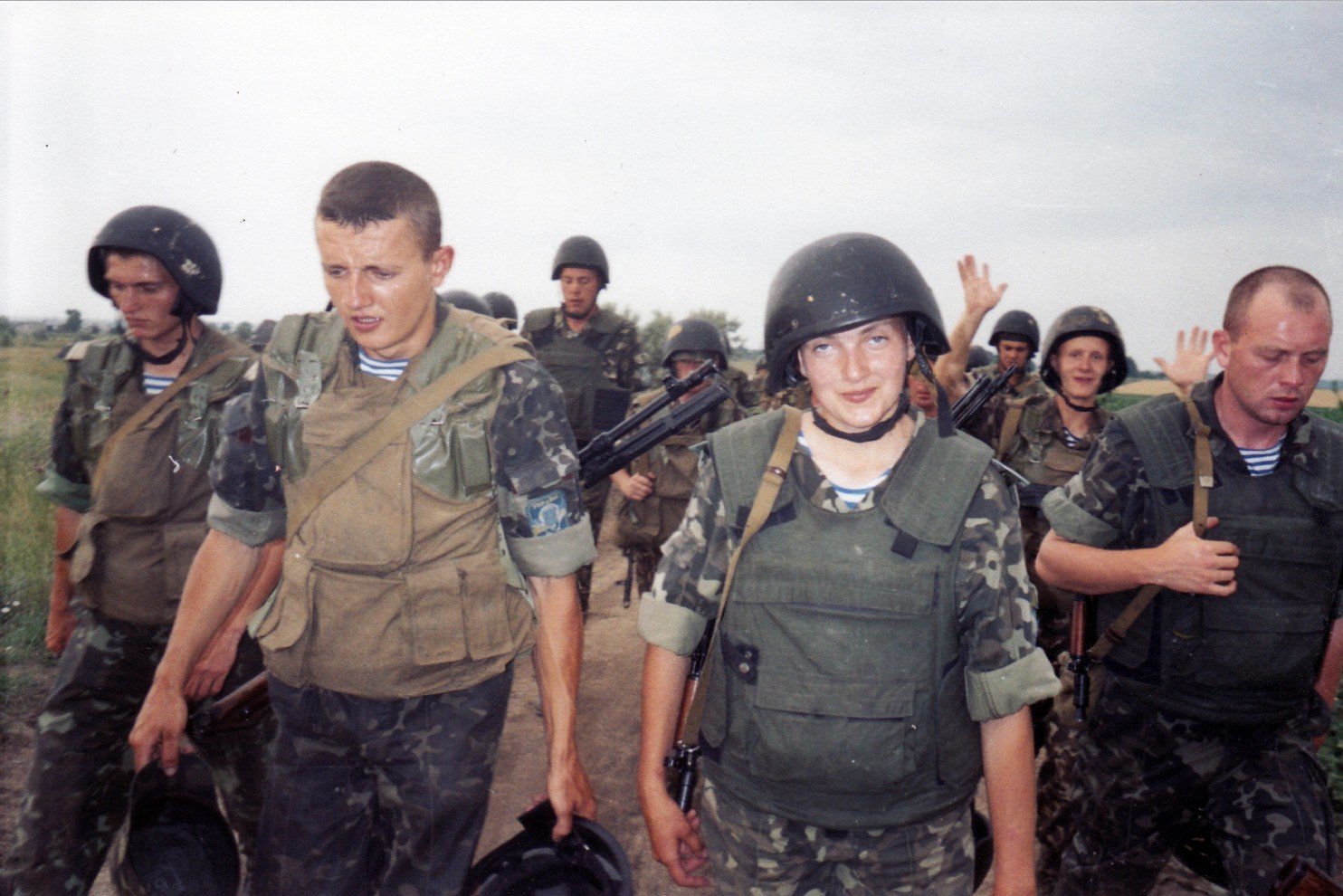
Nadiya Savchenko, third from left, is pictured before a deployment to Iraq in 2004. In Aug. 2015 she appeared in a Russian court to face murder charges, after allegedly being kidnapped from Ukraine. Many feel her trial is an example of Russia’s impropriety in seeking justice for casualties in the Ukraine crisis. Photo: Savchenko family via Washington Post
A covert agent disappears from his homeland, and next shows up days later in an enemy prison. The agent’s government claims he was kidnapped in a police operation and forcibly moved to enemy territory. The enemy claims the agent carried covert audio equipment and firearms, intending to execute a “covert operation.”
A Cold War-era spy thriller? On the contrary, this situation happened in 2014 and is very real. The agent in question—Estonian security officer Eston Kohver—was taken into Russian custody. He was convicted on charges of espionage, and sentenced to 15 years in prison last Wed., Aug. 19, 2015.
Just hours after Kohver’s sentencing, prosecutors in the southern Russian city of Rostov-on-Don sought a prison term of 20 years for Oleh Sentsov. A Ukrainian filmmaker, Sentsov is accused of plotting to destroy a statue of Lenin in Crimea. He is charged with terrorism.
Two days later a Ukrainian military officer, Nadiya Savchenko, was indicted on murder charges in Russia after allegedly being kidnapped from Ukraine. She is accused of carrying out a mortar strike that killed 2 Russian journalists.
High profile court cases have become the latest battleground between familiar adversaries: Russia and the West. All of these arrests result from the involvement of the FSB, Russia’s intelligence agency and main successor of the KGB, and evidence used in each of the trials has been deemed top secret and not been publicly released. Dmitri Trenin, director of the Carnegie Moscow Center, states that Moscow is on a “war footing” with the West, and the trials are another front.
Savchenko’s case has received particular attention around the world, as she was elected to Ukraine’s parliament while in prison. U.S. officials have identified Savchenko as a “hostage” and demanded her release. According to the Washington Post, Russia has offered to exchange Savchenko for two Russian soldiers being held in Ukraine. It is possible that the accused in the other trials could also end up as political bargaining chips in prisoner exchanges, but nothing is certain at this point. Some are accusing Russia of violating international laws by arresting Kohver, Sentsov, and Savchenko without sufficient evidence and holding biased trials.
These cases are certainly troubling, and represent yet another volatile area of contention with Russia. Relations with Russia are delicate, but it cannot be allowed to make unsubstantiated arrests and abduct suspects from other countries. This might be the beginning of a slippery slope no one wants to go down.